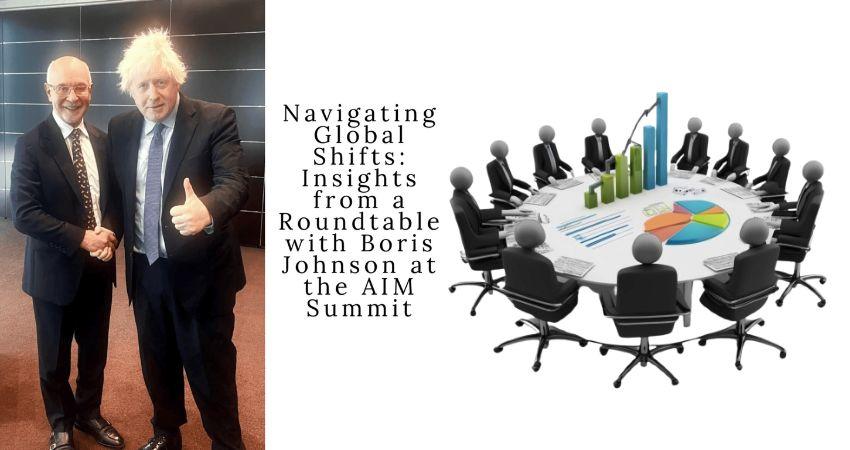Notifications

4 minutes, 36 seconds
-362 Views 0 Comments 0 Likes 0 Reviews

In an era of geopolitical uncertainty, world leaders must navigate complex challenges to maintain stability and economic progress. The AIM Summit Dubai served as a platform for an exclusive roundtable discussion on global security, economic diplomacy, and political realignments.
The session, chaired by David Gibson-Moore, featured Boris Johnson, the former Prime Minister of the United Kingdom, who shared his insights on geopolitical challenges in the Middle East, the future of NATO security post-Ukraine war, and the UK’s foreign policy post-Brexit.
This blog explores the key takeaways from this high-level discussion and what they mean for the future of international relations.
The Middle East remains one of the world’s most volatile regions, facing ongoing conflicts and power struggles. Boris Johnson and David Gibson-Moore discussed the key geopolitical challenges in the Middle East, including:
The long-term impact of regional conflicts on global stability.
The role of major global powers in shaping the future of the Middle East.
Economic diplomacy as a tool for conflict resolution.
David Gibson-Moore’s perspective on global shifts highlighted the importance of strategic partnerships and diplomatic negotiations in securing lasting peace.
The war in Ukraine has dramatically reshaped NATO’s defense priorities and the broader global security landscape. Key takeaways from the discussion included:
NATO’s renewed commitment to European security and military readiness.
The shifting balance of power between Russia, Europe, and the West.
How global leadership is responding to new security threats.
Boris Johnson emphasized that stronger cooperation between NATO allies is essential to counter global security risks and maintain peace.
Since Brexit, the UK has been redefining its position on the global stage. Boris Johnson shared his thoughts on the Global Britain vision post-Brexit, covering:
The UK’s increasing trade partnerships with major economies like India and members of the CPTPP (Comprehensive and Progressive Agreement for Trans-Pacific Partnership).
The role of the UK in multilateral organizations such as the United Nations and the World Trade Organization.
The opportunities and challenges in Britain’s post-Brexit diplomatic strategy.
With a focus on trade, security, and leadership, the UK aims to strengthen its influence in international affairs and foster economic growth.
One of the most pressing topics discussed at AIM Summit was how world leaders must adapt to rapid geopolitical changes. The session highlighted:
The rise of new economic superpowers like China and India.
The importance of strategic diplomacy in conflict resolution.
The need for global cooperation to tackle economic and security challenges.
David Gibson-Moore’s perspective on global shifts reinforced that nations must embrace flexibility and innovation in their foreign policies to remain competitive and secure in an uncertain world.
The AIM Summit Dubai roundtable, featuring Boris Johnson and David Gibson-Moore, provided deep insights into geopolitical realignments, security challenges, and the evolving role of nations on the global stage.
As global shifts continue, leaders must collaborate, innovate, and adapt to navigate the complexities of today’s political and economic landscape.
Boris Johnson insights on global shifts AIM Summit Dubai roundtable with David Gibson-Moore Geopolitical challenges in the Middle East Global security and NATO post-Ukraine war David Gibson-Moore’s perspective on global shifts Geopolitical shifts and global leadership insights

